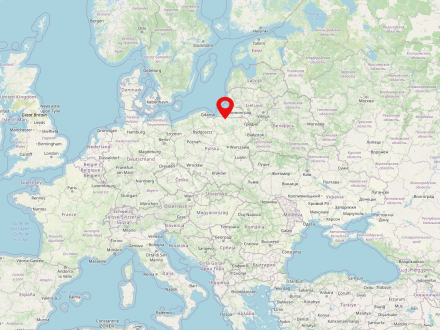East Prussia is the name of the former most eastern Prussian province, which existed until 1945 and whose extent (regardless of historically slightly changing border courses) roughly corresponds to the historical landscape of Prussia. The name was first used in the second half of the 18th century, when, in addition to the Duchy of Prussia with its capital Königsberg, which had been promoted to a kingdom in 1701, other previously Polish territories in the west (for example, the so-called Prussia Royal Share with Warmia and Pomerania) were added to Brandenburg-Prussia and formed the new province of West Prussia.
Nowadays, the territory of the former Prussian province belongs mainly to Russia (Kaliningrad Oblast) and Poland (Warmia-Masuria Voivodeship). The former so-called Memelland (also Memelgebiet, lit. Klaipėdos kraštas) first became part of Lithuania in 1920 and again from 1945.
In 2016, the Duisburg Museum "City of Königsberg" was closed down and the East Prussian State Museum took over its collections. These comprise some 3,500 exhibits, including paintings, arts and crafts, archival documents and historical exhibits. The “Kantiana” are particularly noteworthy and make this arguably the most extensive collection on Immanuel Kant in Germany. The Federal Government and the state of Lower Saxony are now funding an extension that will create 700 square meters of new exhibition space to present Kant,
Kaliningrad is a city in today's Russia. It is located in the Kaliningrad oblast, a Russian exclave between Lithuania and Poland. Kaliningrad, formerly Königsberg, belonged to Prussia for several centuries and was the northeasternmost major city.






